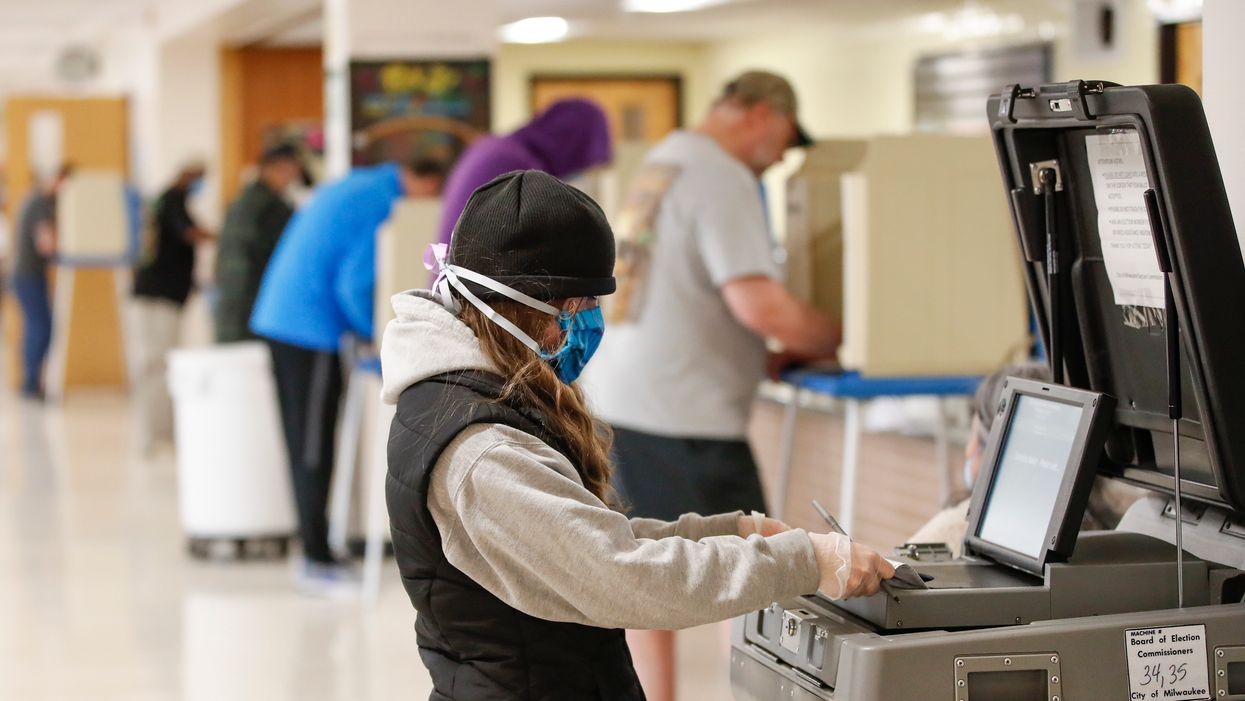Fresh numbers about voting fraud in Wisconsin, one of the essential tossup states in the presidential race, offer the latest evidence underscoring how wrong President Trump is about widespread cheating delegitimizing the election.
Nineteen. That's the grand total of instances of suspected fraud statewide during the past three elections: the 2018 midterm, the presidential primary in April and the regular primary last month. That's out of more than 5.2 million ballots cast in those elections.
And just three of the cases involved misuse of mailed ballots, the report Wednesday from the state Elections Commission said, even though voters have smashed previous records for Wisconsin's no-excuse absentee voting system amid the coronavirus pandemic.
Trump has asserted dozens of times that such a rapid expansion of mail voting will assure "massive" fraud this fall, and recently he's been arguing that's the only reason he could lose. Polling suggests otherwise — including a series of recent surveys showing former Vice President Joe Biden narrowly but consistently ahead in the race for Wisconsin's 10 electoral votes. Trump carried them by a sliver of 1 percentage point last time, breaking a seven-election winning streak by Democratic nominees.
The Elections Commission report detailed these cases of fraud, irregularities or violations (in Milwaukee and just eight of the state's other 71 counties) that municipal clerks in charge of election administration have sent to district attorneys in the past two years:
- 7 election mailings (not ballots) addressed to non-existent voters.
- 4 people attempting to vote twice in person in the same election by going to two different locations.
- 4 people providing faulty information on voter registration applications.
- 3 people attempting to vote twice in the same election, using both mail ballots and either in-person early voting or the polls on Election Day.
- 1 felon attempting to register.
The commission did not say how many of these reports led to criminal charges or were confirmed by police. And it's possible private citizens or groups reported additional cases to law enforcement.
The infinitesimally small accounting of possible cheating was the second such report this week to underscore the unfounded nature of the president's claims. Montana reported finding 493 dead people on the rolls statewide but not one case of their names being used to vote.
Republicans in control of Wisconsin Legislature often echo the president in saying election fraud is a real concern, and they use that threat to justify one of the strictest voter ID laws in the nation. And two Republican appointees to the commission said they were not molified by the fresh evidence. Although 1.8 million absentee votes have been tallied this year in the two preliminary elections, they said, the report should not be used to predict what will happen in November — when perhaps another 2 million mail votes will be cast.
"I think it's a much bigger risk than we've had in the past," Commissioner Dean Knudson said. "Even if it is a tiny, tiny fraction, it's still a serious infraction for voters to do that."
"We have no idea what's going to happen with this huge number," added Bob Spindell.
But Chairwoman Ann Jacobs, who was appointed by a Democrat, said the report was proof that the system of safeguards against electoral misbehavior "has worked extraordinarily well."




















